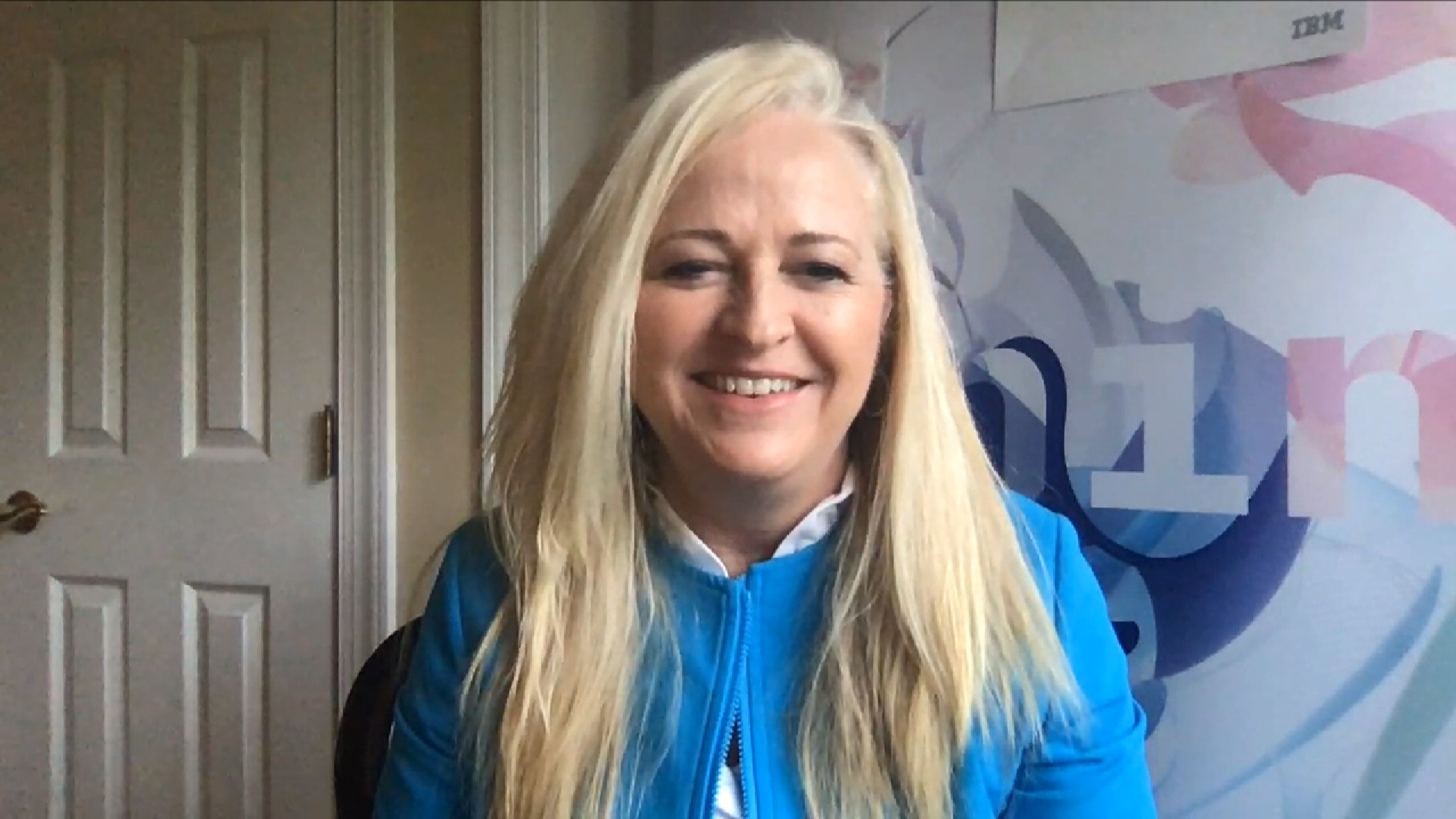 EMERGING TECH
EMERGING TECH
 EMERGING TECH
EMERGING TECH
 EMERGING TECH
EMERGING TECH
While the mainstream application of quantum computers is expected to take a few more years, work on developing this technology is happening right now — and in a collaborative way. Commercial enterprises, academics and startups are working with IBM to co-create around quantum and understand the use cases that can be solved in the near future, according to Jamie Thomas (pictured), general manager of systems strategy and development at IBM.
“We found through our long history in IBM that co-creation is really important,” Thomas said. “In terms of our ecosystem, we are really fundamentally focused on key problems around chemistry, material science, financial services. And over the last year, there’s over 200 papers that have been written out there from our network that really embody their work with us on this journey.”
Thomas spoke with Dave Vellante, host of theCUBE, SiliconANGLE Media’s mobile livestreaming studio, during the IBM Think Digital Event Experience. They discussed how people are working together to develop quantum, the use cases surrounding the new technology, and the interest from startups. (* Disclosure below.)
One of the most important use cases with quantum computing involves the financial industry and topics like trade settlements and options pricing. Many financial institutions have been announced as part of the IBM network, and JPMorgan Chase & Co. is one of main companies that wrote papers about it, according to Thomas.
“In the world of Monte Carlo simulation, options pricing, risk management, a small change can make a big difference in dollars,” she highlighted. “We are talking about operations that in many cases they could achieve but not in the right amount of time. The ability to use quantum as an accelerator for these kinds of operations is very important.”
Another use case example is in chemistry, where there is a lot of research focused on batteries. The idea is to develop batteries that have more retention in life to be more effective in energy conservation. In addition, pharmaceuticals are advancing research in many different areas with new quantum technology.
“You can think of the quantum computer when it comes online as an accelerator to a supercomputer,” Thomas explained. “Helping speed up research even faster than what we’re able to do with something like the Summit.” Summit is a supercomputer developed by IBM for use at Oak Ridge National Laboratory.
The countless possibilities for applying quantum computing are also attracting startups. About a third of those in IBM’s network are in venture capital startups, and there is a long list of them out there, according to Thomas. They are interested in many different aspects of the technology.
“Many of them are focused on what I would call loosely the programming model, looking at improving algorithms across different industries, making it easier for those that are perhaps more skilled in domains — whether that is chemistry or financial services or mathematics — to use the power of the quantum computer,” Thomas said. “Many of those startups are leveraging our Qiskit, our quantum information science open programming model that we put out there, so it’s open.”
Watch the complete video interview below, and be sure to check out more of SiliconANGLE’s and theCUBE’s coverage of the IBM Think Digital Event Experience. (* Disclosure: TheCUBE is a paid media partner for the IBM Think Digital Event Experience. Neither IBM Corp., the sponsor for theCUBE’s event coverage, nor other sponsors have editorial control over content on theCUBE or SiliconANGLE.)
Support our mission to keep content open and free by engaging with theCUBE community. Join theCUBE’s Alumni Trust Network, where technology leaders connect, share intelligence and create opportunities.
Founded by tech visionaries John Furrier and Dave Vellante, SiliconANGLE Media has built a dynamic ecosystem of industry-leading digital media brands that reach 15+ million elite tech professionals. Our new proprietary theCUBE AI Video Cloud is breaking ground in audience interaction, leveraging theCUBEai.com neural network to help technology companies make data-driven decisions and stay at the forefront of industry conversations.